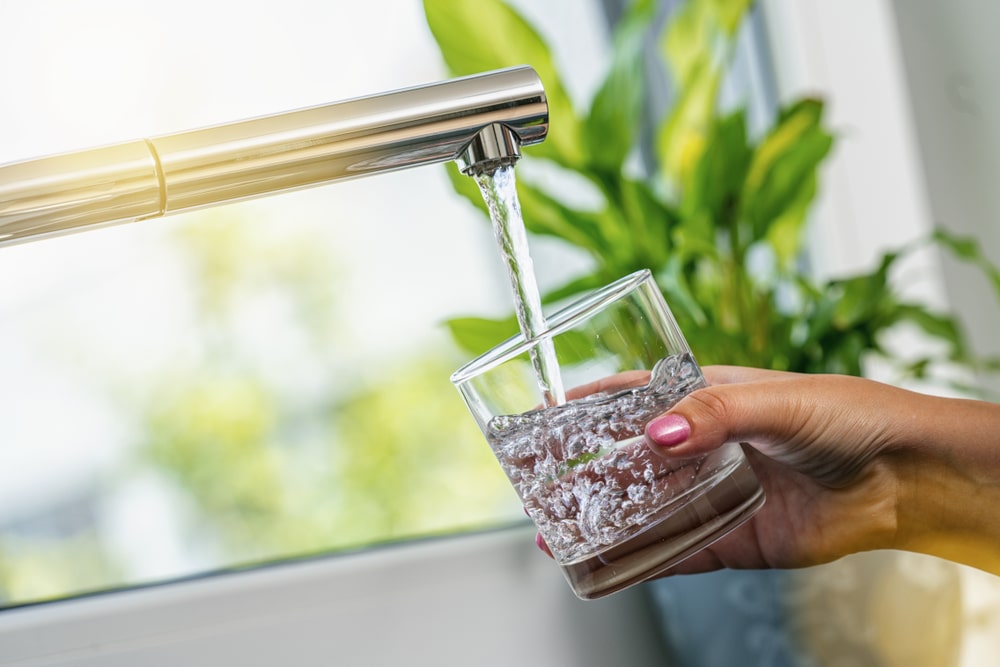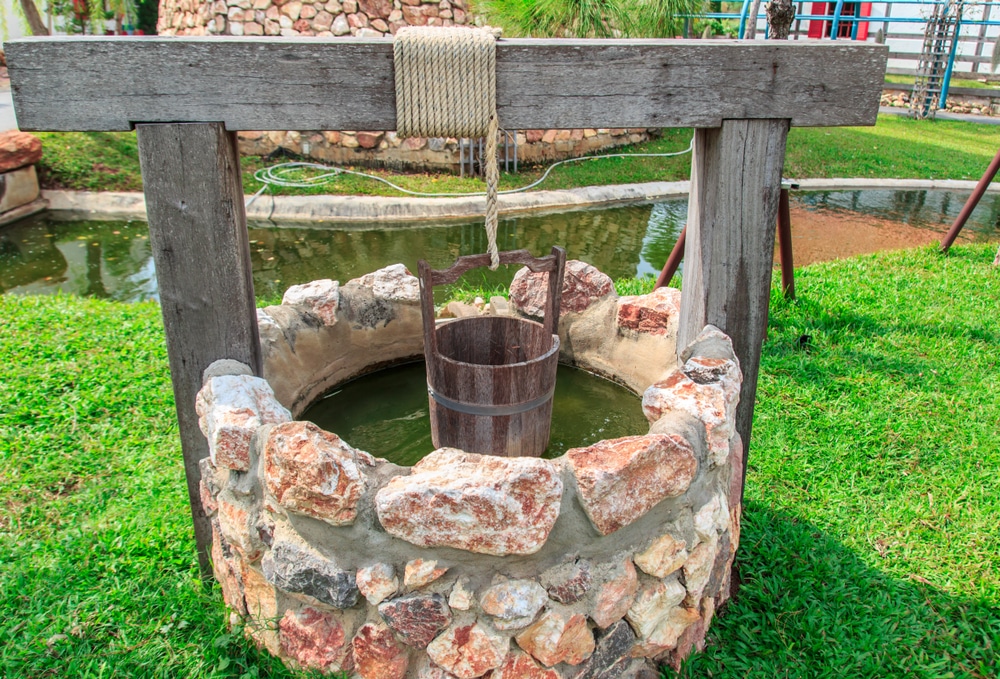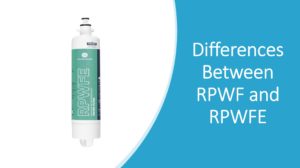Many people will find themselves facing the decision as to whether they should use city water or well water when purchasing a home. There are notable differences between the two, and it will take a bit of research to help you make an informed choice.
This guide will summarize both water systems, the key differences between them, and answer frequently asked questions about city water vs. well water. Which is best for you? Let’s take a look at the facts.
Differences Between Well Water Vs. City Water
When it comes to the debate of city water vs. well water, it’s going to come down to the differences that sway you in one direction or the other. Your home can either, and there are benefits and shortcomings to both.
Here are some of the critical differences between city water and well water:
- Water Bill
- Freshness and Nutrients
- Natural Disaster Contamination
- Electricity
- Quantity and Quality
- Mortgage Lenders
Water Bill
Should you choose well water, you won’t receive a water bill because water gets distributed to you via your private well or septic system.
Freshness and Nutrients
Well water is generally going to be fresher than city water and also higher in nutrients and minerals. Since the water comes directly from the underground aquifer, versus surface water or run-off water, it’s cleaner. Because city water comes from these sources, it’s been in contact with many more chemicals and pollutants than well water.
Natural Disaster Contamination
During a natural disaster, well water is generally protected from becoming contaminated. Meanwhile, city water is in limited supply because disasters such as floods will disrupt the city’s capacity to distribute clean and healthy water to everyone’s home.
Electricity
City water isn’t dependent on electricity in the way that well water relies on the pump that’s used to retrieve the water from the ground. In the instance that the power goes out, the water pump won’t work. This means you won’t have any water to supply your needs of drinking, bathing, etc. You’ll need to have a backup generator or some other form of electricity.
Quality and Amount
The city is held to guidelines that require that your water be tested regularly to meet safety standards, and it must be stored in abundance. If your well just so happens to run dry, that’s your problem, not the city. The owner of the well is responsible for all testing and water treatments for safe water use.
Mortgage Lenders
A mortgage lender will typically prefer city water because it’s more predictable than well water. City water has to be constantly regulated whereas well water, as previously mentioned, is the sole responsibility of the owner. Homeowners who opt to use city water have better tests offered to them over those who select well water.
What is City Water?

City water is water that’s supplied to a valve (tap). It is used for cooking, drinking, washing, and flushing the toilet. The EPA has a requirement that every community water distribution center has to do an annual report on the quality of the drinking water to the customers.
This report has to include the source of the water, any contaminants that were found, and any potential adverse effects on health.
The process of distributing city water to homes generally consists of multiple steps such as:
- Collection
- Screening and Straining
- Adding Chemicals
- Coagulation and Flocculation
- Clarification
- Filtration
- Disinfection
- Storage
- Distribution
The first step is for the water to be collected from a local source such as a reservoir, river, or lake. The city has a system of pipelines and pumps to transport the water to a plant that does treatments.
Next, you’ll probably realize that these water sources have varying amounts of dissolved and suspended materials like microorganisms, plants, trash, fish, etc. The water is screened to get as much of those particles out as possible through a large metal screen.
Once this process is over, the screened water receives chemicals that have a positive charge. The chemical charge will neutralize the negative charge present in the dissolved particles and dirt in the water. After this happens, the floc is formed from the particles gelling together and forming even larger particles.
During the next step of the process, called sedimentation, the floc that has formed falls to the base because of how heavy it has become.
Next, the water has to be filtered because the clear water on top has separated from the floc on the bottom. The clear water will now go through multiple filters such as charcoal, sand, and gravel, which will remove dust, viruses, bacteria, chemicals, and other particles.
After the water is filtered, chlorine (a disinfectant) is added to eliminate any parasites, bacteria, and viruses that remain; it also protects the water from germs.
Once the water has been disinfected it gets stored in elevated and underground storage tanks. There must be an abundance of water available in case of an emergency.
Lastly, the water reaches your homes and businesses through a distribution system. Small pipelines, overhead water storage tanks, large water pumps, fire hydrants, and water meters transport the water.
Related Guide: Best City Whole House Filter
- Heavily tested as required by the EPA
- Convenient
- No maintenance required
- It contains healthy nutrients added by the city to make it safe for use
- Available in the majority of places
- Preferred by mortgage lenders
- It is controlled by the city, which means they can cut off your water supply at will
- Is affected by natural disasters such as floods (contamination)
- Less fresh than well water
- Can be expensive
- Treated using harsh chemicals such as Chlorine or Chloramine
What is Well Water?

Well water is the water for everyday use that comes from a private well on someone’s property. The well is constructed via drilling into the group to tap into an underground aquifer. The aquifer is below ground between 40 and 400 feet.
When a contractor drills a hole, a water sample is submitted to test for contaminants such as bacteria, nitrate, and lead. Beyond this testing by the driller, it is up to the homeowner to continue taking care of their well by testing the water periodically. Failure to do so could result in severe health effects.
The well water could become contaminated by nearby sources that leaked into the groundwater. Water quality can change; this is why it’s crucial to conduct periodic tests on your well water supply.
This water gets pumped into your house and the well is connected to one of two sources, a septic system or a sewer system through the city. Groundwater from aquifers doesn’t go through the same chemical treatments that city water undertakes. Therefore, its structure of minerals and nutrients is still intact upon arrival into your home.
Furthermore, deep wells have the added benefit of being self-sufficient and recharging themselves. This benefit allows for a steady and uninterrupted water supply that is not easily affected by dryer weather conditions. It also isn’t prone to be shut off by another entity such as the city.
Due to its high quality and taste, well users feel that they have more freedom, control, and independence over their water supply, and they tend to save more money due to the absence of a monthly bill for their water usage.
Related: The 5 Best Well Water Filtration Systems of 2021
- No monthly water bill
- Fresher, better tasting water that still has high minerals and nutrients
- Immune to contamination from natural disasters like floods
- Supply can’t get disrupted by someone else
- Adds value to your home
- Better fit the environment
- The responsibility to test the water is on the owner
- Can be contaminated by bacteria and other harmful pollutants without proper upkeep and testing
- Dependent on electricity because of the water pump
- Your well running dry is your problem, not the city
Is it Cheaper to Have Well Water or City Water?
In the long run, well water would be cheaper than city water because of the monthly bill aspect. When you are the owner of a water source that doesn’t rely on others, it’s free as far as the actual water usage is concerned.
When you dig a well it costs close to $5,000 to drill because you pay between $15-$30 per foot of digging. This cost is in addition to the nearly $500 a year it costs to maintain the well. If you’re able to purchase a house that already has a well, you can skip the $5,000 installation fee and focus on maintenance throughout the year.
You have to pay per gallon for city water bills every month. Nationwide, these fees are rising, and water bills are getting costly for everyone. On average, an average household of four spends about $630 a year on water.
Frequently Asked Questions
The only time that well water is bad is when the owner doesn’t properly tend to it. If you aren’t checking your well water at least once a year for contaminants such as bacteria and parasites, you run the risk of getting seriously ill.
Contaminated water can cause nausea, diarrhea, vomiting, and other diseases due to improper maintenance. As long as the well owner is responsible and keeps up with testing and water treatments, your well water is safe.
One of the most significant advantages of well water vs. city water is that you don’t receive a monthly bill for your well water. You pay to use the city’s water supply system. With a well, you only pay for yearly maintenance fees and treatments) testing for your well water.
If your water is pumped through the tap from a city supply via lakes, rivers, groundwater, and run-off sources, you have city water. If your water comes from an underground aquifer and is drawn or pumped from a well, you have well water.
It’s important to note that city water supplies can also be partially from the sources above and partially from a well. Well users have an independent water source while city water users do not.
Well water is not only drinkable, but it’s healthy because the water has retained its natural minerals and is high in nutrients. Well water also hasn’t been treated by chemicals, so there’s less of a chance that you have an adverse reaction when drinking it.
This answer will come down to preference in taste for many, but the statistics show that well water is likely healthier than bottled water.
Bottled water doesn’t go through the same rigorous testing as city water. Therefore, it may contain more contaminants than one would think. Bottled water doesn’t have the high mineral and nutrient count like underground water from an aquifer, it’s costly, and it’s bad for the environment since most bottles aren’t recycled.
Well water has many treatment options available that owners opt to use as an extra precaution. You can select a filtration system to remove water impurities through a biological, physical, or chemical process.
You can also use water softeners containing potassium or sodium ions to treat hard water containing magnesium and calcium ions. This treatment makes the water feel less harsh on skin and hair.
Lastly, if you suspect your well water is contaminated, you can use disinfection as a treatment system. Using chemical and physical elements such as chlorine, ozone, UV lights, and heat is a great way to ensure your water is safe for use and consumption.
Well water is pumped from an aquifer underground and is used as a city water source, but it is most often for a private home. Public water is commonly confused as city water, but they’re not the same. City water is a supply that continually goes to the same population.
Public water systems assist communities, businesses, restaurants, schools, and small housing communities that provide water. Also, most public water entities are private, not publicly owned.
Final Thoughts
Well water vs. City water, what’s the verdict? Look at the community you live in; is quality drinking water provided to the inhabitants? Are there frequent complaints about the taste, odor, and safety of the supply? Also, consider your financial situation. If you could stand to save money over the years, you may opt to choose well water. Remember that you will pay a lot to have it drilled, and you’ll need to test and maintain it yourself.
For taste and healthier quality, you may want the well water. For convenience and assurance with testing and contamination, city water is more heavily regulated and perhaps the better option. The ultimate choice is your own, but please be responsible with either decision as water is crucial to our survival, and we need to be more mindful of using it wisely, despite the source.






We have a creek nearby. What system would be best for it if city water goes off in an emergency?
Hi Shirley, I’m assuming you’re after a true manual type of emergency solution and not a whole separate system to build to take advantage of the creek and pump it to your house. If I’m right on this, then a filter like this is just excellent for what you want. Units like this one I linked for you are especially well suited for emergency situations where you can simply walk to the creek and quickly pump whatever amount of water that you need into a bottle, jug, or bucket. Especially the unit I picked out for you is a trusted brand and one that I’ve personally used and find easy and reliable. I hope that helps.